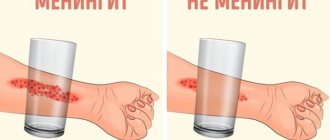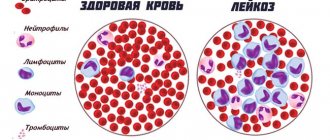“We bought a dacha, now I’m constantly digging in the ground. Naturally, I can hurt myself with tools and cut myself with sedge. Do I need to be vaccinated against tetanus? I had this vaccination when I was a child.” Svetlana, 37 years old
Tetanus is an infectious disease caused by the bacillus Clostridium Tetani. It lives in the intestines of animals, and the spores of this bacillus, entering the soil through feces, become a source of dangerous infection. Therefore, in case of soil-related injuries, as well as in a number of other cases, it is necessary to carry out emergency prevention.
Vaccine options
To prevent tetanus, all children are given tetanus toxoid as part of combination vaccines.
Types of tetanus vaccines: AC - tetanus toxoid (if necessary, for example, for puncture injuries, etc.), DTP - adsorbed diphtheria-tetanus-pertussis vaccine, ADS - Adsorbed diphtheria-tetanus vaccine, ADS-m - Adsorbed diphtheria-tetanus vaccine vaccine with reduced content of diphtheria toxoid. And also the vaccines “Bubo-Kok”, “Bubo-M”, “Infanrix Penta”, “Infanrix Hexa”, “Pentaxim”, “Tetraxim”, “Infanrix”.
Principles and purposes of vaccination
Since natural immunity does not exist, that is, immunity after an illness is short-lived, susceptibility to the disease is very high, and the course of the disease is extremely severe, with a high probability of death, you should be vaccinated against this dangerous infection. Tetanus can be rapidly prevented through immunization and vaccines containing tetanus toxoid, which are included in childhood immunization programs worldwide.
Isolated tetanus vaccination can be successfully used to immunize people of any age group, both children and adults. It is especially important to vaccinate pregnant women who have not previously been vaccinated against tetanus, as this can reduce the risk of maternal and neonatal (infant) tetanus to virtually zero. In addition, antibodies against tetanus are passed from mother to newborn, protecting the baby for two months. To develop full immunity to infection, it is necessary to administer five doses of tetanus vaccine. It is recommended that adults, especially women of childbearing age, be revaccinated throughout their lives, which will ensure immunity to infection for life. In Russia, adults are recommended to receive a booster vaccination against tetanus every 10 years.
Vaccination is carried out three times, with an interval of 45 days and a single revaccination 12 months after the 3rd vaccination, i.e. at 18 months of age. Further, according to the vaccination calendar, revaccination is carried out with ADS-M toxoid at 7 and 14 years of age and subsequently every 10 years. Emergency prevention of tetanus consists of primary surgical treatment of the wound and the simultaneous administration of a vaccine (ADS or ADS-M) and human tetanus immunoglobulin (TSHI), or purified concentrated antitetanus serum (PTS).
Emergency prophylaxis of tetanus
Emergency preventive measures against tetanus infection are carried out when:
- injuries resulting in an open wound;
- tissue necrosis;
- damage to the gastrointestinal tract, resulting in open wounds;
- burns, frostbite 2-4 degrees;
- animal bites.
In such situations, the risk of infection is highest, so the vaccine is administered along with wound treatment. The earlier immunoprophylaxis is done, the higher the chances of avoiding infection. You can start 20 days after receiving a serious injury.
For emergency preventive vaccination against tetanus for children who are vaccinated in accordance with the National Calendar, it is enough to administer 0.5 ml of “AS-anatoxin”. If the child has not previously been vaccinated against tetanus infection, active-passive immunization is necessary. In this case, 1 ml of tetanus toxoid is combined with 3000 IU of anti-tetanus serum. After this, vaccination with toxoid is carried out according to the standard procedure.
Vaccine effectiveness
The effectiveness and efficiency of tetanus toxoids have been documented. In most clinical trials, effectiveness ranged from 80% to 100%. The introduction of tetanus vaccination in the United States in the 1940s caused the overall incidence of tetanus to decline from 0.4 per 100,000 population in 1947 to 0.02 per 100,000 population in the late 1990s. In a double-blind, controlled study conducted in rural Colombia, neonatal tetanus did not occur in neonates born to mothers receiving double or triple doses of the vaccine, while in an unvaccinated control group of neonates the mortality rate was 78 deaths per 1000 live births. The only means of prevention is vaccination, the effectiveness of which is 95-100%. Strong immunity against diphtheria and tetanus lasts approximately 5 years, after which it gradually fades, so revaccination against these diseases is required every 10 years.
Classification
- Depending on the location of the lesion:
- Local tetanus (paralysis is limited to one or several muscle groups in the wound area and is typical for previously vaccinated people);
- Generalized tetanus (convulsions involve all muscle groups).
- According to the severity of the course (assessed in patients with a generalized form):
- Mild degree;
- Moderate degree;
- Severe degree;
- Extremely severe.
- Forms of tetanus depending on the entrance gate:
- Traumatic (after operations, injuries, childbirth, burns, wounds and frostbite);
- Inflammatory-necrotic (in patients with disintegrating tumors, ulcerations of the skin and mucous membranes, bedsores);
- Cryptogenic (the entrance gate is not defined, the incubation period is extended to several months, the wound has long healed and the patient has forgotten about it).
Adverse reactions
If vaccination is carried out with the DPT vaccine, then it should be remembered that vaccines are the most reactogenic, “heavy” childhood vaccines. On average, post-vaccination reactions occur in a third of vaccinated people, and not for every vaccination. They are manifested by a moderate increase in body temperature and mild malaise within 24 hours after vaccination. As a rule, all adverse events when administering the DPT vaccine develop no later than 72 hours (3 days) after vaccination and last no more than 48-72 hours.
Other types of tetanus vaccines have very low reactogenicity, that is, the development of post-vaccination reactions is very rare. Usually the vaccination is easily tolerated.
Local reactions such as redness of the injection site, swelling, induration or the formation of a “bump” are relatively common. These reactions are normal and go away on their own. Today, according to the World Health Organization, tetanus vaccination can cause a number of side effects that are not a serious health disorder and can be easily treated. Possible side effects of the tetanus vaccine include the following conditions: seizure activity, dermatitis, rhinitis, bronchitis and pharyngitis.
Vaccination with ADS-M at the Trit clinic - advantages and comfort
Medical uses only certified drugs with proven effectiveness. Before vaccination, all patients undergo a mandatory medical examination. The selected drugs and compliance with the procedure regulations help reduce the risk of side effects.
Qualified specialists strictly follow the vaccination protocol, which allows us to raise the quality and safety of services to a high level.
Medical staff help protect your health using the most effective methods. We are for a safe future, where the health and lives of patients are not threatened by dangerous infections.
Risk of post-vaccination complications
As with any other vaccine, in rare cases allergic reactions to vaccine components are possible. These complications are not related to the properties of the vaccine, but to the amount of excipients in specific preparations, whether the child is allergic to them and, in some cases, non-compliance with vaccination rules. It is significant that, according to statistics of post-vaccination complications in the United States, even severe allergic reactions to DTP vaccines have not led to serious consequences in any case since 1978, taking into account the fact that about 80 million vaccinations were given during this period. Possible specific complications of DTP vaccines include neurological complications, which are extremely rare. It is assumed that they may be caused by the fact that the toxins of pertussis bacillus (even inactivated) in combination vaccines tend to irritate the meninges of an extremely small proportion of susceptible children. Complications in the form of encephalopathy are less than 1 case per 300 thousand vaccinated people.
Currently, in the world, convulsions without fever are not considered a complication of vaccination. Research conducted in Great Britain in 1960-1970. indicate the same frequency of seizures in vaccinated and unvaccinated children. Moreover, the first manifestations of diseases such as epilepsy, organic damage, and are associated with vaccination only by a temporary factor.
The development of afebrile seizures indicates the presence of an organic lesion of the nervous system in the child, which was not taken into account and identified or could not be identified before vaccination for objective reasons. Therefore, in the event of afebrile seizures, a comprehensive neurological examination is necessary to make a diagnosis.
Touch Sensitivity
As Aspergers themselves state, their world is much louder than that of the average person. This is due to increased sensitivity to any stimuli, be it smells, touches, sounds, or visual images. It has been established that a similar phenomenon occurs in approximately 40% of people with AS. A hypersensitivity reaction can be triggered by anything: air temperature, bright light, food, clothing such as scratchy wool or labels on the underside, the touch of other people or large accumulations of them.
For example, when riding on public transport (subway, train, bus), Aspies sometimes use earplugs or headphones that play their favorite music. The mass of people, stuffiness and noise irritate them, unbalance them and lead to stressful conditions. Music helps to distract and calm down. When the situation becomes extremely tense, they have to leave it, go off the route to stand alone and enjoy the silence, and then continue on foot.
There are special types of therapy to cope with sensory problems. One of them is sensory integration therapy. Its essence lies in deliberate contact with unpleasant stimuli, occurring gradually and in doses. Thus, a person begins to get used to such collisions, no longer feeling irritability and panic.
It is very important for Aspergers to identify a method or strategy for neutralizing unpleasant impulses. For some, this solution is a small dose of alcohol.
According to Aspies, it muffles all obsessive sensations and helps reduce stress levels. Someone needs to retire for a while, wander through empty streets, someone swings on a swing.
Contraindications
DPT vaccines are temporarily or absolutely contraindicated if the child has a progressive pathology of the nervous system or has had seizures without fever (afebrile). In this case, children are vaccinated with a vaccine without a pertussis component (PVC). Temporary and relative contraindications are exacerbation above 40 C, swelling and hyperemia at the site of vaccine administration over 8 cm in diameter).
There are practically no absolute contraindications to ADS and ADS-m vaccines, with the exception of severe allergic reactions to their previous administration.
Symptoms of diphtheria and tetanus, what to look for
Both bacteria belong to the pathogenic group of microorganisms that can cause acute infectious diseases. Therefore, an infected person should be immediately isolated to reduce the risk of spreading the infection. You can also become infected with tetanus through contact with sick animals.
Symptoms to look out for so you can take immediate action:
- general weakness of the body, high temperature, enlarged lymph nodes;
- sore throat, difficulty swallowing, swelling of the neck and laryngeal tissues;
- enlarged tonsils and congestion of the pharyngeal mucosa;
- plaque on the tonsils, mucous membrane and adjacent tissues.
Diseases and their complications can cause death, can paralyze the neck muscles, increase the load on the heart and disrupt the functioning of the nervous system.
The following symptoms are typical for tetanus:
- fever, severe weakness;
- muscle tension and spasms throughout the body, especially in the face;
- difficulty breathing;
- spasms that can cause asphyxia and lead to death.








